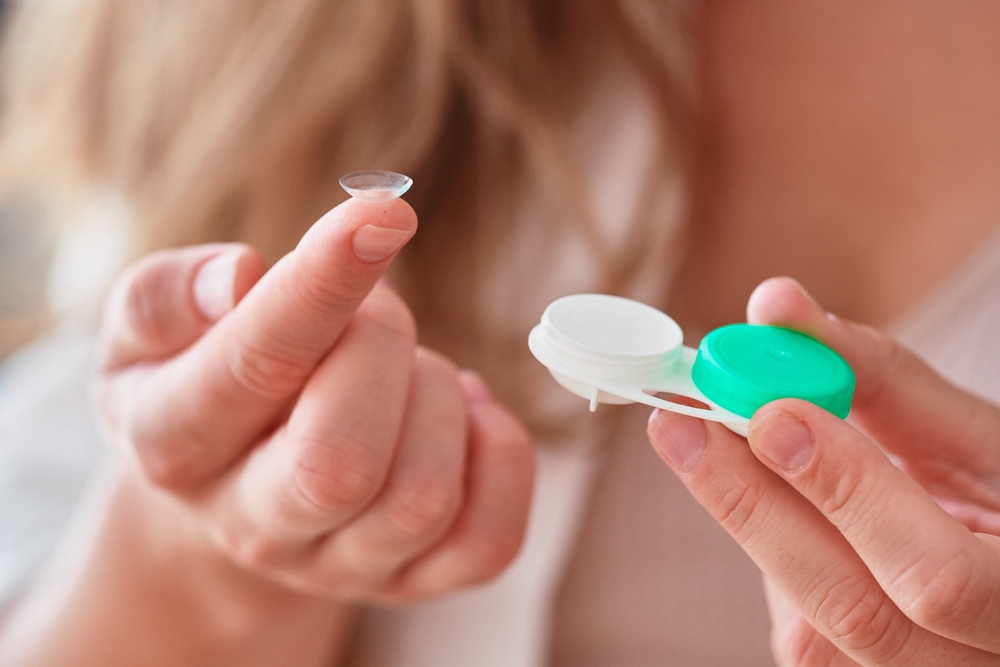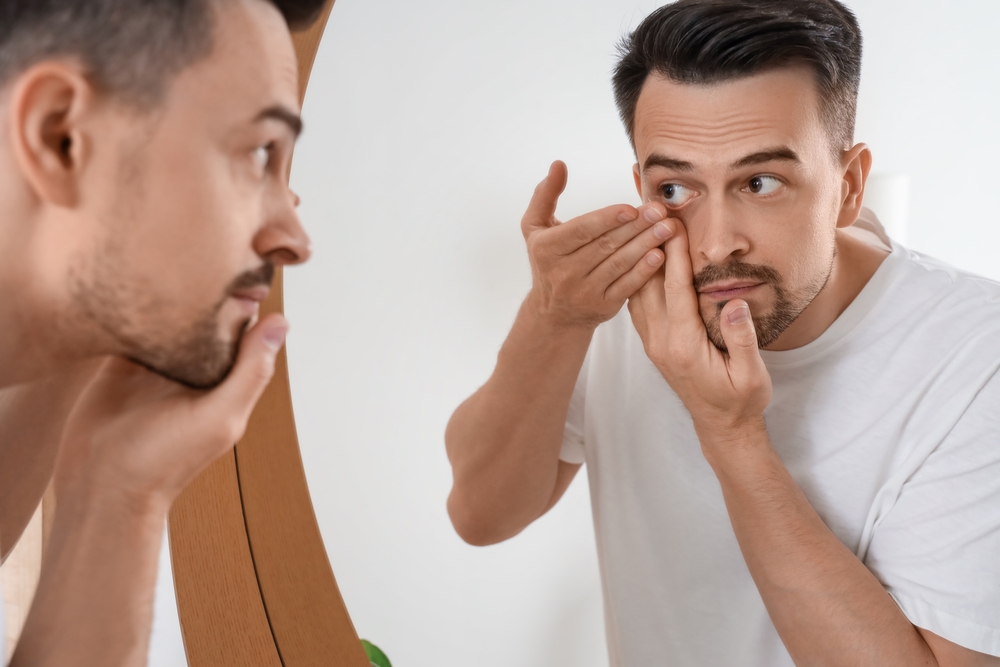If you wear contact lenses, you’ve likely noticed there are many options available. From daily disposables and bi-weekly lenses to monthly contacts, there’s a lot to consider. With so many choices, it’s natural to wonder if these different types of lenses require different prescriptions or if you can simply switch between them using the same prescription.
This is one of the most common questions we hear at Blaine Eye Clinic, and understanding the answer can help you make better decisions about your eye health and vision correction needs. Keep reading to learn more about contact lens prescriptions and how they relate to different wearing schedules!
What’s the Difference Between Daily and Monthly Contact Lenses?

Before diving into prescriptions, it’s important to understand what makes daily and monthly lenses different from each other. The main difference is how long you can use each pair before discarding them.
Daily disposable lenses are designed to be worn for just one day before being thrown away. You open a fresh pair each morning and discard them each night. This eliminates the need for cleaning and storage solutions, making them a convenient and hygienic option for many wearers.
Monthly lenses, on the other hand, are made to last for up to 30 days of wear. You wear the same pair each day, removing them at night for cleaning and proper storage. These lenses are typically made from slightly more durable materials to withstand repeated handling and cleaning over their longer lifespan.
Both types have their advantages. Daily lenses offer fresh, clean lenses every day with minimal maintenance, while monthly lenses can be more cost-effective for some wearers and may be available in a wider range of prescriptions for complex vision needs.
Are the Prescriptions Different for Daily and Monthly Contacts?

The short answer is: sometimes. While the basic prescription parameters like sphere power (your basic nearsightedness or farsightedness correction) will generally be the same across different lens types, there can be subtle differences in how the prescription is implemented.
Contact lens prescriptions are more specific than glasses prescriptions. They include not only the power but also the base curve (how the lens fits the curvature of your eye) and diameter (the overall size of the lens). These additional measurements ensure the lens sits properly on your eye and provides optimal vision correction while remaining comfortable. This is one of the many reasons why you can’t use your glasses prescription to fill a contact lens order.
Different brands and types of lenses may have different available base curves or diameters, which means your eye doctor might need to adjust these parameters when switching between daily and monthly lenses to maintain a proper fit.
Additionally, the materials used to make daily and monthly lenses can differ in thickness, oxygen permeability, and water content. These differences can sometimes affect how the lenses perform for your specific eyes, which may necessitate small adjustments to your prescription.
Can I Switch Between Daily and Monthly Lenses Without Changing My Prescription?
This is where consulting with your eye doctor at Blaine Eye Clinic becomes essential. While many people can switch between different wear schedules without significant prescription changes, it’s not a decision you should make independently.
Your eye doctor at Blaine Eye Clinic will consider several factors when determining if you can switch lens types:
- The specific brands being considered and their fitting characteristics
- Your eye health needs, including how your eyes respond to different lens materials
- Your lifestyle and wearing habits
- Any specific vision correction requirements you might have
In some cases, a lens that fits well in a monthly variety might not be available with the exact same parameters in a daily option, or vice versa. Your doctor might need to select a different brand or make small adjustments to ensure proper fit and vision correction.
This is why contact lens prescriptions are brand-specific. They’re written for a particular lens type from a specific manufacturer, taking into account how that lens will interact with your unique eyes.
It is important to note that you should never start wearing your daily contact lenses monthly or monthly contact lenses daily without consulting your eye doctor first. This could lead to discomfort, poor vision, and potentially serious eye health complications. Always follow the wearing schedule prescribed by your eye care professional.
Why Do I Need a Contact Lens Fitting Even If I Already Have a Glasses Prescription?

Many new contact lens wearers are surprised to learn that their glasses prescription isn’t automatically transferable to contact lenses. This is because contact lenses sit directly on your eye, while glasses sit about 12mm away from your eye.
This difference in distance creates what eye care professionals call a “vertex distance” correction, which can be particularly significant for higher prescriptions. Additionally, a glasses prescription doesn’t include the crucial fitting parameters (base curve and diameter) needed for contact lenses.
During a contact lens fitting, your eye doctor will perform a variety of tests to ensure the best fit for your eyes and the best prescription for your vision. This personalized approach ensures that your contact lenses not only correct your vision properly but also fit comfortably and safely on your eyes.
How Often Should I Update My Contact Lens Prescription?
For healthy adults, an annual comprehensive eye exam and contact lens evaluation are typically recommended. This yearly check-up allows your eye doctor to assess not only your vision needs but also the health of your eyes and how they’re responding to contact lens wear.
Contact lens prescriptions usually expire after one year in most states, meaning you’ll need to see your eye doctor annually to renew your prescription. During these annual visits, your doctor can determine if changing lens types might benefit you.
Do you have questions about which type of contact lenses might be best for your lifestyle and vision needs? Schedule an appointment at Blaine Eye Clinic in Blaine, MN, today! Our experienced eye doctors can help you find the perfect contact lens solution for your unique eyes.





